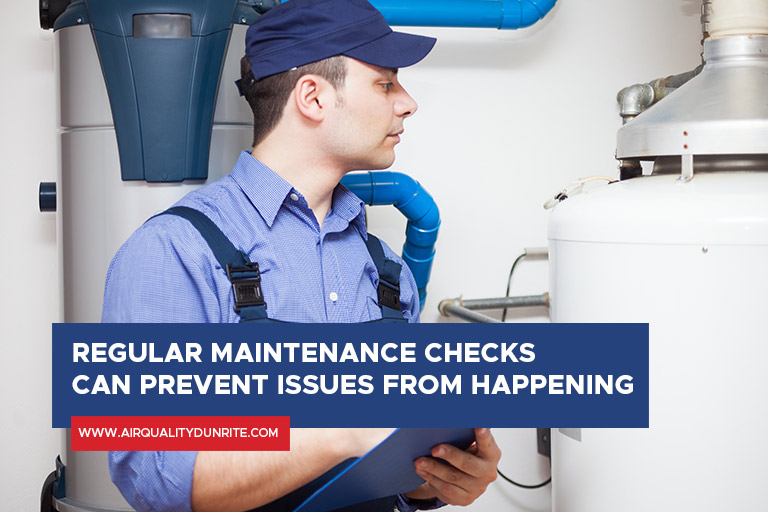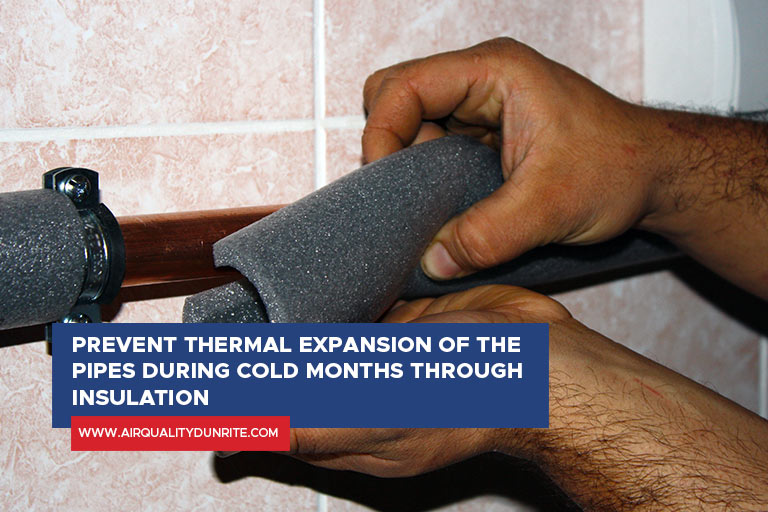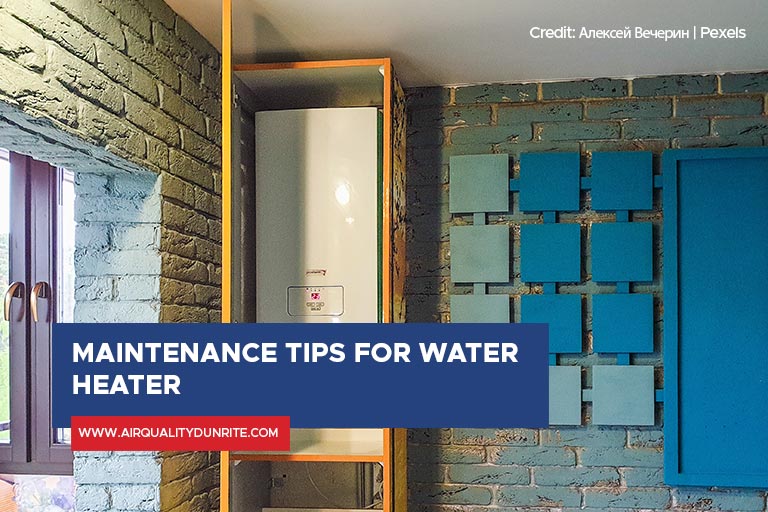The benefits of indoor plumbing are numerous. However, because indoor plumbing is such an integral part of our daily lives, it often goes unchecked. This is especially true when it comes to water heating. It is used in almost every aspect of the house, from the shower to the kitchen. Because of the role that water heating plays in your home, it only makes sense that you invest time, energy, and money to maintain it. Waiting for any damage to happen would be more costly.
It’s a good investment to conduct regular maintenance checks and repairs to minimize water usage, billing costs, and damage. Here are some basic maintenance tips for water heaters that you should know about:
- Perform regular inspection

Get an HVAC repair and maintenance crew to also do regular checks on your water heaters.
Since it’s an appliance that is used almost daily, it needs to be inspected at least every 2 months. By doing so, you can detect any possible problems with your water heaters and determine if any parts should be replaced, cleaned, or upgraded earlier.
- Flush annually
Hard water coming from the main line can be filled with plenty of minerals such as calcium and carbon. During the heating process, some of these compounds might separate and stick to the walls of your heater, or settle at the bottom. This will cause a mineral build-up.
When this happens, it could lead to a less efficient system and will increase your electricity bills in the process. To ensure that you’re water heater is performing at top capacity, flush it annually.
This will allow you to remove any sediments that may have settled. It’s also important to note, that after the flushing process, you should wait for the tank to fill out fully before you turn it on. This will prevent stress on the water heater, which will cause damage.
- Insulate the tank
Heat energy can dissipate over time. For the water heater to function efficiently, it has to hold on to that energy as long as it can. A typical water heater is designed to do just that. However, you can further improve its capability by adding an extra layer of insulation to the tank.
This will lead to lesser electricity costs, better performance, and improved overall economic use. To do this, consult with a local company that specializes in HVAC services to help you.
- Reduce the temperature
Most of the installed water heaters are often set at a temperature (usually 140°F) that is impractical. As the owner, you can lower the setting while keeping it at the desired temperature.
Doing so will help you spend less energy, save more money on bills, and prevent any burns that you may get from scalding water. The recommended temperature is at least 120°F, which can still accomplish the usual intended use for hot water.
- Check the TPR valve
Heating experts always say that temperature and pressure have a linear relationship. This means that when pressure increases, so does the temperature, and vice-versa.
This is because the increased force on the water will compact the molecules and increase their velocity and interaction with one another, which in turn, will increase the temperature.
For these 2 factors to be regulated, a control valve is necessary. The pressure inside the heating system can exceed safe levels, which is prevented by the temperature-pressure release (TPR) valve. The valve will release the build-up, which makes the TPR valve a crucial component.
To make sure that the TPR valve is working properly, you must check it regularly. Test the valve by lifting the lever while observing the discharge pipe. Water should come out and you can stop the flow by lowering the lever. If no water comes out, the valve may need to be replaced.
- Change the anode rod every 5 years
Tankless water heaters don’t need anode rods since water automatically flows through them. However, if you have a conventional hot water tank, you must replace your anode rods regularly.
The anode rod is responsible for preventing corrosive minerals from reaching the tank. Regularly replacing the anode rods will protect your water quality and prevent any corrosion in your tanks.
- Replace the air intake filter regularly
A feature of tankless water heater systems, air intake filters will prevent any debris from the outside environment as the appliance tries to heat the water. Since the filters are exposed to dust regularly, it’s only natural that they are replaced at least every year to ensure the efficiency of your water heaters.
- Insulate the pipes

You should also include the pipes connected to the water heater. Covering your plumbing with insulating material will prevent pipes from freezing during winter; stopping any possibilities of thermal expansion and leaking. You can ask for help from HVAC contractors to do the insulation properly.
It’s easy to take water heaters for granted. However, it’s extremely important for you to prevent it from breaking down. Make sure it’s in top condition by conducting regular maintenance check-ups.
Let the heating experts from Air Quality Dunrite do the maintenance check and repair of your water heaters. Call us now at (416) 674-8184.



